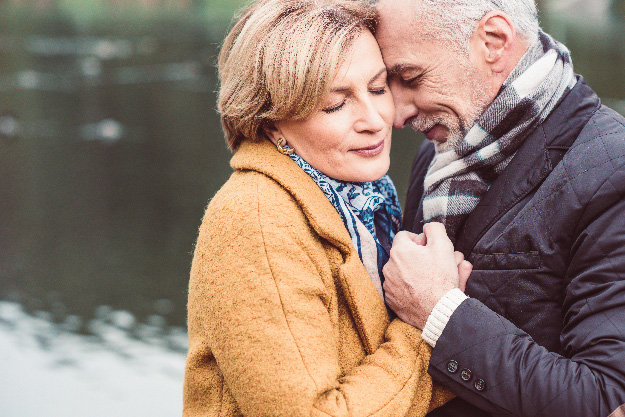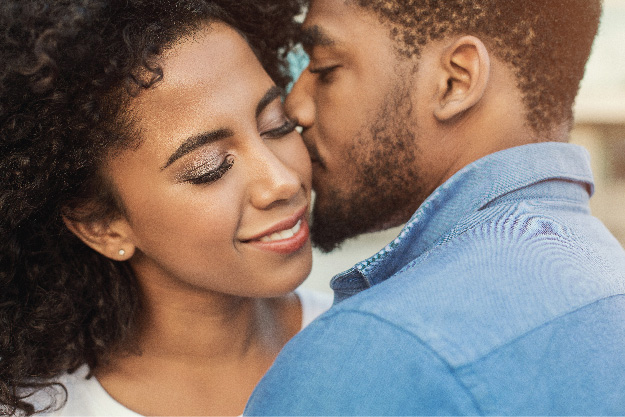“Why does love hurt?” It’s a question that gives me pause every time, because my knee jerk reaction is to say defensively “It doesn’t” or “It shouldn’t.”
Love should feel great! And a lot of the time, it does. But as soon as I shift into reality mode and settle into my “wiser” self, I have to acknowledge that it does hurt. Sometimes a lot. Profoundly.
Love hurts for so many reasons and there are innumerable books – spiritual, self-help, existential, psychological – enumerating all the reasons why. In a nutshell, love hurts because it matters. Like all of our other emotions, love is a potent messenger telling us what to pay attention to, and to give us an important message…or two.
This is true whether you look through the lens of evolution, anthropology, sociology, physiology, or spirituality. We don’t do well in isolation and we crave connection at a very fundamental level, in order to survive.
Our brains send out neurotransmitters and hormones telling us when we’re safely connected or not.
And then goes on to explain that it’s the bid for connection that fails, that fuels the conflict. So, it’s not who has the remote control after all, when we’re watching a show or scrolling to find a better one.
It’s when my partner makes a bid saying “Wait, I want to see what that’s about” and I keep scrolling, ignoring his bid, that the seed for conflict is planted. Or when I ask if we can go dancing this weekend and my spouse either says sure, and doesn’t follow through (turning away) or says “Fat chance! You know I hate going dancing!” (turning against).
Becoming aware of how we make Bids to connect with one another and paying attention to whether we’re Turning Towards (“Yes, I will take you dancing, cause it’s been awhile” or even “I’d love to, but I’m afraid I’m not up for it after the craziness at work.
Can we find another way to spend time together, and we’ll plan to go dancing another weekend?) or Turning Away or Against is one very crucial way we can minimize the pain that comes with love. Connection and attachment is good — it feels good and it’s good for us.
The Masters of relationships Turn Towards their partners’ bids much more frequently than the Disasters. In one study that followed couples for 6 years, the couples still together happily had Turned Towards each others’ bids 86% of the time while those divorced or unhappily together, had only Turned Towards bids 33% of the time.
It’s in the very small, every day moments that we choose how to turn. It’s on the weekends, as we go to bed, as we wake up, and how we renew and refresh ourselves that we choose to Turn Towards or Away.
And, for the times we do turn away or against — because we all do at times, circling back around to make a Repair and reconnect gets us back on track.
If we accept the invitation, we become a more whole person than we were before. But it costs us something. I love the definition of sacrifice that says “it is giving up something good for something better.” In relationships, this is especially true.
There is an element of giving up part of my (good) self for the (better) relationship. We do this without questioning, when it comes to a baby or child of ours. Of course I’ll get up for the 4th time tonight to soothe, feed, clean up puke, etc. Yes, my sleep is good and important, but caring for you is better. Being in partnership with our adult partner demands a similar intensity of sacrifice and growth, but somehow we fight against it more.
One of the 4 Horsemen that predicts the end of a relationship is Defensiveness. And one of the definitions of Defensiveness is “ a refusal to accept the invitation to grow.”
And yet, there is little or no change.
I’m not talking about the little things, but the kinds of conflicts that feel like deal breakers if they continue — around fairness, power sharing, respect, priorities, and ultimately the dream of what we’re building together and how we each feel loved and cared for. When all is said and done — literally, the only thing that seems to start to soothe my pain is when I finally start looking inward for where change needs to happen. What do I have power over? Myself.
As painful as it has been each and every time, I have come away with renewed insight and perspective on what can change. I slowly move away from focusing on him and what he needs to do or be different and refocus on how I might grow and change to become a better version of myself.
I hate it every time! Even though I consider one of my core values to be growth and development. Growth is hard and painful. But in the end, so worth it to become a better version of myself. On the other side. After the pain of growth has passed. 🙂
And then I remind them to instead look at their self — their own part. Pay attention to what they do well and what they personally could do better. After all, as Dr. Gottman reminds us, “People can only change if they feel basically liked and accepted for who they are”.
So yes, love hurts. First because love is just that important, that it must grab our attention. And second, because no other force is as good at inviting us to grow, change, and become our best self.
As Buddhism reminds us, “Pain is. Suffering is optional.” We will have pain with love — it just is part of its very nature. But we can reduce our suffering by becoming intentional and masterful at making bids and choosing to turn towards our partner much more often.
And we can reduce our suffering by choosing to learn and become a better version of our self, replacing our natural Defensiveness with humility and curiosity and a willingness to accept the influence of our partner in our own growth.
Disclaimer: As you can see from the above, love hurts in the ways described. But it shouldn’t hurt to the point of humiliation, abuse, or neglect. Nobody deserves to be abused in any way. Abuse is using one’s position of power in a relationship to dominate and harm another person.














